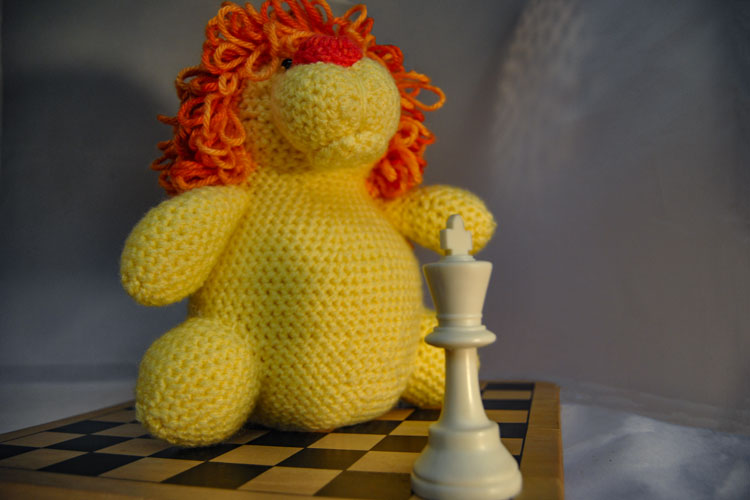
Learning can sometimes be daunting, but is nearly always worth the effort. Over Spring Break, I learned this the hard way when I endeavored to create a stuffed animal and learn the basics of Chess. photo by Baxter Stein.
Taking the first step in a new challenge can be a difficult, yet rewarding experience.
As a beginner, starting a new activity can seem daunting. Pastimes of all variety, from reading to casual gaming, usually have gatekeeping tactics to keep newcomers away from those wiser, more hardened veterans of the hobby. It is difficult to read Shakespeare when all you have been studying is Dr. Seuss. It is difficult to cook a five-star Michelin meal when you only know how to boil water. I am here, along with the remains of any community that seemed too intimidating to thrive, to tell you: keep trying.
The most dominant reason for inactivity is laziness. Nobody wants to spend their precious time slaving away learning when they could very well be binging a show. If you are having fun, it is not a waste of time after all! Well, I am here to disagree. The human brain is programmed to feel bored, sometimes even disgusted when feeling guilty about a lack of activity. When one puts themselves in a difficult situation and forces themselves to learn, the satisfaction they feel upon success far outweighs the temporary pleasure of relaxation.
But like I said earlier, it is not easy to just “up and commit” to a new hobby. Often, it is difficult to muster the will to really hammer in on a new interest. A tried and true strategy of bypassing this is to set deadlines for yourself, such as deeming creative projects as “due” by a certain date. Doing this might drain some passion from your newfound hobby, but it will definitely find itself making its way to the top of your priority list. If you find yourself hesitant to do this, that is alright too. Just know that there will be moments where you will think about skipping a day or quitting altogether, and when those moments come you should trust yourself to make the correct decision.
Recently, I had an overwhelming bout of boredom spring break. In my distress however, I began teaching myself two new hobbies, both of which are notoriously difficult to learn. Chess and crocheting. Both were definitely an endeavor, but I committed a solid hour a day to each. Each day I learned new openings, as well as new ways to lose, in chess as well many new knots and particular yarn types for crocheting. It seems trivial to another, but the time I spent practicing these activities were both overwhelming and therapeutic. The first day seemed to be more the former than the latter. Soon however, each day was making the activity more and more second nature. By the end of break, I was mustering up some chess victories, and had even created a small blanket. More importantly though, the activities became less of a chore and found a natural place in my schedule!
Upon first glance, it seems like an odd notion to encourage. If an activity serves as only a time dump, what is the point of wanting it to thrive? As someone who’s never baked or sewn, why would I try it myself if I could never hope to be as good as my grandmother? It has a simple, yet profound, answer. Because it is the journey, not the destination, that makes the endeavor truly great. To struggle, overcome, and achieve progression; these are the reasons we get up in the morning. Without these, what have we really allocated our time into, other than a waste of it? Can we not feel content struggling all the time, if it happens in the name of progression?